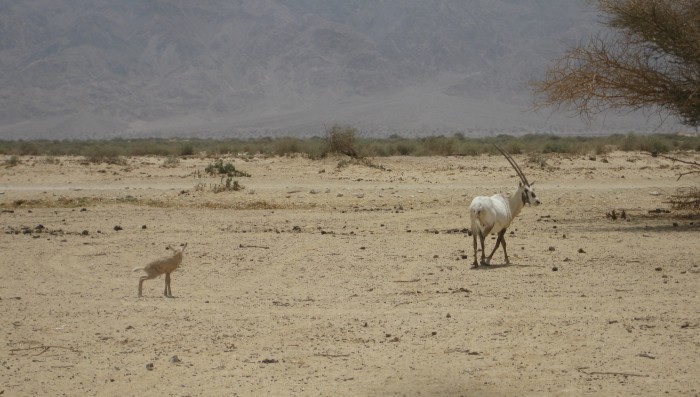By Karen Tannenbaum
Karen is a California rehabilitator who usually volunteers at the Wetlands & Wildlife Care Center in the US but is spending the summer as a volunteer at an Israeli wildlife rehabilitation and education center, Hai Bar Yotvata. Since IWRC currently has no Israeli members (hopefully we will soon) I thought the membership would be interested in the current state of rehabilitation in the country. Regardless of where we are, we always regard our animals and practices as normal, be that kangaroos and possums, raccoons and redtails, or pandas and cincerous vultures. By sharing each others “normal” we learn things that benefit us all.
Arrival Day 2/22
After a four-hour bus ride from Jerusalem, Abby (another American volunteer) and I were dropped off at an extremely desolate bus stop near Kibbutz Grofit-our home for the next few months. We called the Hai Bar Yotvata staff coordinator (Zohar) who had arranged to retrieve us from the bus stop upon our arrival. About 15 minutes later, we were startled by a fast approaching green truck veiled in sand. Out jumped three Hai Bar staff members who loaded our suitcases into the back of the truck and welcomed us to town. We were overwhelmed, but so thrilled. Zohar explained work conditions and our shift times and we were left to explore our apartment and the kibbutz. The other staff members, Eitan (21), Ido (21) and Yaniv (18) invited the two of us to a BBQ outside their apartment. We all spent time getting to know each other (while eating a DELICIOUS dinner) then went to sleep early in order to prepare for our first day volunteering.
2/23
Today was our first day on the reserve. I met the director of the reserve and the rest of the exceedingly hard working staff members. I was sent to work with Eitan who told me a little bit about Hai Bar and put me to work cleaning and feeding the Egyptian Fruit bats, porcupines, Terrestrial tortoises, and Fat Sand rats. Besides rehabilitation, Hai Bar is an educational center working towards furthering people’s knowledge of native Israeli wildlife. I was amazed by the variety of species they house at the reserve, including cheetahs, leopards, wolves, jackals, ostriches, and hyrax, just to name a few. After a few hours of work, I was told that I would be taking care of the Egyptian Fruit bats for the duration of my time there. Exciting!! The animals currently being rehabilitated include an assortment of reptiles and raptors, and Hai Bar is home to an incredible Oryx habitat that is part of a larger Oryx rehabilitation project.
2/24
Today was really exciting. I got to do a ride along with some staff members to tag a newborn Oryx. Erik, one of the lead staff members, explained the ear tagging patterns that they use to keep record of the Oryx population in the reserve. Tick marks on different locations along the edge of the ear represent different numbers. We drove into the reserve to search for the baby, and once we had found it and brought it to the truck to get tagged I was staggered by how small she was! Her anxious parents surrounded the car and Erik worked as quickly as possible to get the baby back out to her mother. Afterwards, we corralled a group of Addax from an enclosure out onto the reserve. All in all, today was a day filled with unforgettable first-time experiences.
2/25
Today was my day off, but I was too excited to just hang out on the Kibbutz. I went to work at 5:30 AM and took to my post as the Egyptian Fruit bat caretaker. I relished the responsibility. After the bats’ first feeding I shadowed Eitan as he took me around the carnivore enclosure to clean and check on the animals. When we were done I was instructed to observe/practice carnivore food prep…which meant I had to help dismember the dead feeder calf. I had never done anything like that until today. At least these animals get incredibly fresh food, right? :)





Leave a Reply
You must be logged in to post a comment.